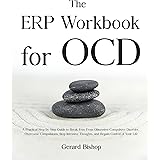While the accompanying video eloquently outlines ten distinct characteristics of highly self-aware individuals, exploring these traits on a deeper, more analytical level reveals the profound cognitive and emotional architecture underpinning genuine self-awareness. It has been widely established that individuals demonstrating high levels of self-awareness often experience enhanced psychological well-being, improved interpersonal relationships, and superior professional performance. Indeed, a recent study by the NeuroLeadership Institute indicated that self-awareness is among the most crucial leadership qualities, correlating directly with organizational effectiveness and innovative problem-solving capacities. True self-awareness extends far beyond simple introspection; it involves a sophisticated feedback loop between internal states and external behaviors, constantly refining one’s understanding of their impact on the world and themselves. This comprehensive exploration delves into the nuanced mechanisms through which self-aware individuals navigate their internal landscapes and external environments, offering a more granular perspective on these essential practices.
1. Mastering Verbal Deliberation and Intentional Communication
Self-aware individuals meticulously select their words, understanding that spoken language possesses immense power to shape perceptions and outcomes. This deliberate verbal processing is not merely about avoiding offense but reflects an advanced capacity for cognitive filtering and emotional regulation. Such an individual recognizes their internal emotional state, ensuring that their communication is a measured response rather than an impulsive reaction, akin to an expert sculptor carefully choosing each chisel stroke to reveal the intended form.
The ability to speak calmly and clearly, articulating precise meaning, stems from a well-developed internal lexicon and a deep understanding of semantic nuances. They understand that ambiguous language can create unintended friction, whereas clarity fosters connection and mutual understanding. This thoughtful approach to communication acts as a cornerstone for building robust relationships and cultivating healthier social dynamics, minimizing misinterpretations and fostering genuine rapport. Effective communication, therefore, becomes a conscious act of strategic engagement, reflecting a mastery over both inner impulses and external expression.
2. Embracing Cognitive Flexibility and Intellectual Openness
A hallmark of profound self-awareness is an unwavering openness to novel perspectives and challenging ideas, even those that directly contradict one’s established beliefs. This intellectual humility allows individuals to transcend confirmation bias, viewing differing viewpoints not as threats but as valuable opportunities for cognitive expansion. Much like a scientist who actively seeks disconfirming evidence to strengthen a hypothesis, self-aware people embrace diverse inputs to refine their internal models of reality.
Engaging with opposing viewpoints forces a rigorous self-examination of one’s own assumptions, requiring the individual to articulate and substantiate their convictions with greater clarity and depth. This process of intellectual wrestling not only broadens their understanding of the issue at hand but also deepens their metacognitive awareness of how their own beliefs are formed and maintained. This cognitive flexibility enhances adaptive thinking, allowing for a more nuanced comprehension of complex situations and fostering genuine intellectual growth within an ever-evolving world.
3. Optimizing Executive Function Through Strategic Time Management
Self-aware individuals demonstrate exceptional proficiency in time management, a skill rooted in an accurate self-assessment of their capabilities and limitations. Their ability to estimate task duration and prioritize effectively is a direct outcome of understanding their cognitive energy levels, peak performance times, and potential pitfalls like procrastination. They approach their schedules not as rigid constraints but as dynamic blueprints, adaptable to their intrinsic rhythms and external demands.
This strategic allocation of time is an active application of executive function, wherein self-aware individuals can initiate tasks, maintain focus, and shift between activities with remarkable efficiency. They recognize procrastination as a symptom rather than an inherent flaw, often linking it to underlying anxieties or perceived difficulties, which they then proactively address. By acknowledging their psychological predispositions, they can implement personalized strategies, effectively transforming their daily operations into a well-orchestrated symphony of productivity and intentionality.
4. Engaging in Reflective Journaling for Metacognitive Insight
The practice of journaling serves as a powerful metacognitive tool for self-aware individuals, enabling them to externalize and process their internal experiences with structured intentionality. While the video notes its stress-reducing benefits, its deeper utility lies in fostering a narrative coherence around one’s thoughts and emotions, transforming fleeting sensations into tangible data points for analysis. Much like an architect reviews blueprints to understand a building’s structure, a self-aware individual reviews their journal entries to understand their psychological architecture.
This consistent self-dialogue on paper allows for the identification of recurring emotional triggers, cognitive distortions, and behavioral patterns that might otherwise remain submerged in subconscious processes. By bringing these elements into conscious awareness, journaling facilitates cognitive restructuring, helping individuals to reframe negative experiences and cultivate a more resilient mindset. It acts as an invaluable personal archive, a longitudinal study of the self, revealing the evolution of one’s mindset and offering pathways for targeted personal growth and deeper self-comprehension.
5. Cultivating Affective Regulation Through Intentional Patience
Self-aware individuals exhibit a high degree of patience, not as a passive trait but as an active skill in affective regulation. This capacity to endure delays and frustrations without succumbing to anger or impulsive decision-making is a testament to their mastery over immediate emotional impulses. They view moments of impatience, such as traffic jams or long queues, as micro-laboratories for practicing emotional resilience and observing their internal reactions objectively.
The ability to pause and observe one’s emotional state, rather than being swept away by it, allows for a conscious decoupling of stimulus and response. This creates mental space to consider alternative courses of action, preventing the kind of knee-jerk decisions that often lead to regret. Practicing patience fortifies their emotional intelligence, helping them to understand the transient nature of discomfort and reinforcing their capacity for thoughtful, rather than reactive, engagement with life’s inevitable challenges.
6. Exercising Cognitive and Affective Empathy
Self-awareness is inherently bidirectional, extending beyond one’s internal world to encompass a profound understanding of how one’s actions resonate within others. Self-aware individuals consistently employ both cognitive empathy (understanding another’s perspective) and affective empathy (feeling another’s emotions) to navigate social interactions with sensitivity and insight. They approach relationships as intricate ecosystems, where every action has ripples, and every word carries weight, much like a skilled diplomat carefully considering the implications of each negotiation.
This empathetic attunement allows them to anticipate the emotional and practical impact of their behaviors on others, fostering stronger social connections built on mutual respect and genuine care. By consciously stepping into another’s shoes, they not only enhance their compassion but also gain crucial feedback on their own interpersonal effectiveness, continually refining their approach to human connection. Empathy, therefore, acts as a vital sensory input, informing and enriching their self-understanding within a broader social context.
7. Embracing Fallibility as a Catalyst for Growth
The acceptance of personal failures is a cornerstone of advanced self-awareness, distinguishing growth-oriented individuals from those trapped in cycles of denial or self-blame. Self-aware people view mistakes not as indictments of their inherent worth but as invaluable data points, critical feedback loops in their ongoing developmental journey. They understand that errors are not endpoints but rather directional markers, indicating areas ripe for refinement and innovation.
Instead of constructing elaborate excuses, which only serve to reinforce cognitive biases and hinder genuine insight, they engage in a rigorous post-mortem analysis of their missteps. This allows them to accurately pinpoint causal factors, whether internal limitations or external circumstances, and subsequently devise actionable strategies for improvement. This resilience in the face of setbacks transforms perceived weaknesses into powerful levers for growth, propelling them forward with enhanced wisdom and a more accurate understanding of their capabilities and the boundaries of their competencies.
8. Cultivating Intellectual Humility and Self-Regulation
Self-aware individuals embody a deep-seated humility, stemming from an accurate, rather than inflated, assessment of their inherent strengths and prevailing weaknesses. This trait is not about false modesty but rather a genuine recognition that their competencies, while valuable, are not universal or absolute. They possess an internal barometer of their abilities, negating the external validation often sought by those less secure in their self-perception, much like a seasoned craftsman knows the quality of their work without needing constant applause.
This intellectual humility fosters a powerful sense of self-control, preventing them from falling prey to hubris or the need for constant external affirmation. Their secure understanding of their own value eliminates the impulse to boast, allowing their actions and achievements to speak for themselves. This cultivated humility strengthens leadership effectiveness, improves collaborative dynamics, and enhances overall work performance by promoting a continuous learning mindset and a focus on contribution rather than self-aggrandizement.
9. Proactively Soliciting External Feedback for Iterative Improvement
A distinctive characteristic of highly self-aware individuals is their proactive pursuit of external feedback, even when it might expose uncomfortable truths or highlight areas for development. They perceive feedback mechanisms not as criticisms but as essential data streams for refining their performance, personality, and professional contributions. This willingness to expose their work and behaviors to external scrutiny reflects a robust ego strength and a genuine commitment to continuous improvement, much like a pilot constantly checking instruments and ground control to ensure a safe and optimal flight path.
By actively seeking diverse perspectives from peers, mentors, or even subordinates, they gain invaluable insights into their blind spots—aspects of their behavior or impact that remain outside their immediate self-perception. The courage to ask questions they might be afraid to answer themselves opens doors to constructive criticism, which, when integrated, facilitates significant personal and professional evolution. This iterative process of feedback acquisition and self-correction is a powerful engine for sustained growth, solidifying their adaptive capacity.
10. Leveraging Inner Dialogue for Cognitive Organization and Validation
Self-aware individuals frequently engage in inner dialogue, often verbalizing their thoughts aloud, as a sophisticated mechanism for cognitive organization and decision validation. As noted by Live Science, this externalization of thought processes can significantly enhance memory recall and make abstract goals feel more tangible, solidifying their mental blueprints. It transforms amorphous internal musings into structured, audible statements, providing a clearer framework for analysis and action.
Psychologist Linda Sapadin’s insights further highlight that talking to oneself, particularly during complex problem-solving or significant decision-making, serves to validate and reinforce crucial choices. This metacognitive strategy allows individuals to “hear” their reasoning, identifying any logical gaps or emotional biases before committing to a course of action. This internal self-auditing process equips self-aware people with superior mental clarity, enabling them to navigate intricate tasks with greater precision and recall essential information more effectively, optimizing their executive functions and ensuring a cohesive internal narrative.








